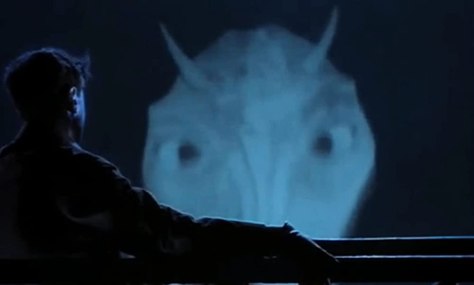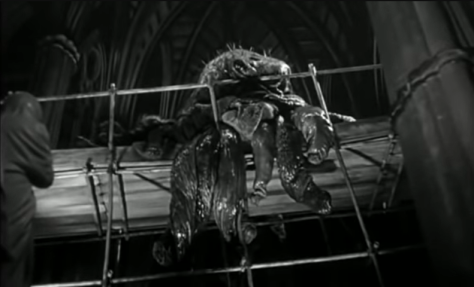
Finally, we are rounding out Nigel Kneale’s Quatermass trilogy, three alien-heavy Sci-Fi films whose impact on the genre in the UK and beyond cannot be understated (maybe don’t expect to see coverage of the much-belated Quatermass/Quatermass Conclusion, which was made when Kneale was in full “Old Man Yells At Cloud” phase.) As with The Quatermass Xperiment, Quatermass II was originally written by Kneale as a six-part BBC television serial, which aired 1955 (commissioned partly to give the BBC a high profile answer to their first privately-owned competitor, ITV), and then adapted into film form by Hammer in 1957 under the slightly altered title Quatermass 2 (or Enemy From Space in other countries.) With Kneale demanding new terms following his displeasure with Hammer’s adaptation of the first Quatermass serial (that argument led to the creation of X the Unknown as a substitute for a second Quatermass in film in 1956), he was given a chance to write the first draft of Quatermass 2 himself, which was then revised by director Val Guest, who had directed both Xperiment and the other 1957 Nigel Kneale adaptation, The Abominable Snowman. Kneale was so pleased with the resulting movie that, when he gained controlling rights to it, he proceeded to remove it from circulation.
Watching both versions of this, it’s difficult to really agree with Kneale’s position—Hammer’s version of Quatermass II is a thoughtfully condensed version of the serial, and even Brian Donlevy returning to play Quatermass (which one of the things that Kneale disagreed with most vociferously) fits better here than he did in The Quatermass Xperiment. While the movie version of Quatermass and the Pit made over a decade later is a generally good adaptation where you can still feel the missing depth and detail of the extended TV serial, the Quatermass II film captures all the atmosphere and deliberate storytelling without much compromise, and in some ways the story is even enhanced thanks to the upped budget. Importantly, the themes that Kneale imbued in that story are fully maintained, and with Guest’s direction, often intensified.
All of the Quatermass stories deal with a loss of human agency due to the machinations of cosmic horrors—the first one featured a near-mindless extraterrestrial organism that altered a man inside and out, and Quatermass and the Pit showed human evolution manipulated by a self-destructive alien civilization in the distant past. By comparison, Quatermass II feels almost normal, as a variation on Invasion of the Body Snatchers paranoia; the TV serial came after Jack Finney’s The Body Snatchers but preceded the film version, a case of parallel thought reflecting the fears in the air in the mid-1950s of secret subversive plots and the battle between free will and conformity. What this version of that story emphasizes is the terrifying speed in which the outside influence seeds itself into positions of power, and how the machinations of our higher offices seem almost tailor-made to shield this invasion from the public eye. There is a specific set of very British observations and ironies animating Kneale’s writing, leading to something that is relatively more grounded than the other two Quatermass stories and their broader existential anxieties, while still suggesting that a malignant, inhuman universe can suddenly assert control over us.
Continue reading Quatermass II

